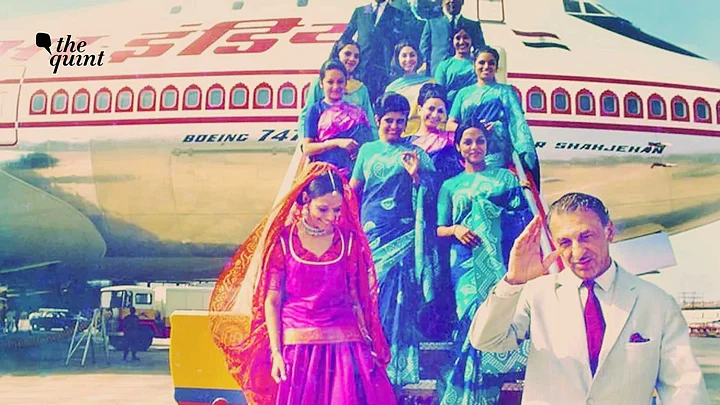Tata Sons emerged as the winning bidder for state-run airline Air India at a bid of Rs 18,000 crore on Friday, 8 October. This comes after four years of efforts by the Indian government to find a buyer for its beleaguered national carrier, Air India and its subsidiaries.
Talace, a subsidiary of Tata Sons, will acquire the airline whose reserve price was pegged at Rs 12,906 crore by valuation advisors to the central government.
Notably, business tycoon JRD Tata had founded the airline and had piloted the first flight in 1932.
The only other bidder in the race was a consortium led by Ajay Singh, the principal shareholder of Spicejet Ltd, who bid Rs 15,100 crore.
The Deal & Restrictions
The winning bid of Rs 18,000 crore comprises of taking over of 15,300 crore of the debt incurred by the airline; the remaining Rs 2,700 crore will be paid to the government.
Air India had accumulated losses worth Rs 83,916 crore as of March 2021 and a total debt of Rs 61,562 crore at the end of 31 August.
Tata Sons will also acquire 100 percent shares of Air India along with its shareholding in low cost carrier, Air India Express, and its shareholding in ground and cargo handling business AISATS.
Air India has a fleet of 117 wide-body and narrow body aircraft and Air India Express Ltd has 24 narrow body aircraft, Tata Group said in a statement.
However, the government will retain Air India's non-core assets including land and building, valued at Rs 14,718 crore, which are to be transferred to the government-owned Air India Asset Holding Ltd (AIAHL), reported Bloomberg Quint.
The media report stated that there are no restrictions on the Tata Group to undertake mergers.
Air India already has two aviation businesses – Vistara Airlines, which is a joint venture of Tata Sons and Singapore Airlines Ltd and Air Asia India, a Tata Sons joint venture with AirAsia Investment Ltd, stated the media report.
The restriction is that during the equity lock-in period, ownership has to remain with the successful bidder and all employees of Air India should be retained for at least one year; after which the company can offer a voluntary retirement scheme (VRS).
(With inputs from Bloomberg Quint)
(At The Quint, we question everything. Play an active role in shaping our journalism by becoming a member today.)
